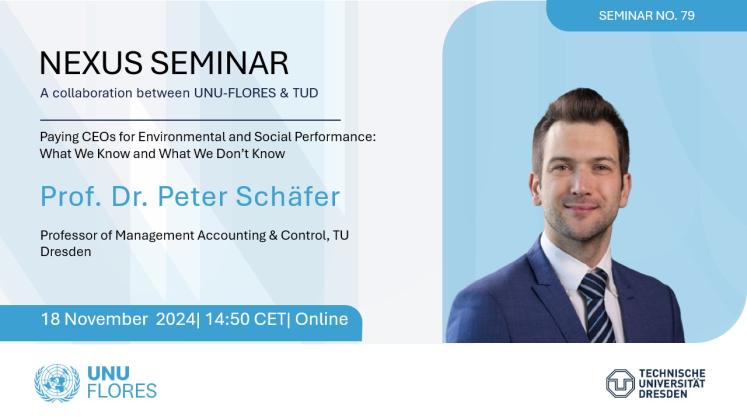In 2021, nearly every second firm used environmental, social, or governance goals (ESG goals) in their incentive schemes for top executives, a two-digit increase over only ten years. Firms tie part of CEO pay to indicators such as carbon emissions, ESG ratings, or employee safety and satisfaction. However, we have only begun to understand ESG goals in CEO compensation contracts. I will give an overview of the young but vivid literature about such compensation components. First, how do firms design ESG incentives? For instance, some researchers argue that the weight of ESG goals is too low to motivate CEOs to change their decision-making. Second, why do firms adopt ESG goals? Maybe investors and corporate boards want to encourage CEOs to reduce the environmental burden or improve the social performance of their firms. However, some researchers view ESG incentives as a new form of greenwashing or CEO rent extraction. And finally, do ESG goals achieve their purpose? Do they help advance ESG goals, or do they create unintended consequences? I will provide an overview of what we know but also highlight open questions that are yet to be answered.
Background of the Speaker:
Peter Schäfer holds the Chair of Management Accounting and Control at TU Dresden. He is passionate about answering questions in management accounting, performance measurement, and incentive systems. How can incentive systems help companies achieve environmental or social goals? How can firms design executive compensation systems efficiently? How does the design of the reporting system affect honesty in budget reports? To answer such questions, he builds analytical models and performs empirical studies with archival and experimental data. He has published his research in leading international journals such as The Accounting Review and the European Accounting Review. He joined TU Dresden in 2023 from TU Munich, where he worked as a PostDoc in Management Accounting since 2017 and as a Professor of Accounting from 2019 to 2021. He studied business administration and mathematics, and he got his Ph.D. in 2017 with a dissertation about performance measurement systems.
Background of the Series:
UNU-FLORES, in collaboration with PRISMA – Centre for Sustainability Assessment and Policy on behalf of TU Dresden, is excited to announce the Nexus Seminar Series. The joint seminar series, which launched in 2015, features lectures by senior scholars and successful practitioners that highlight all dimensions of research on the Nexus Approach, ranging from hands-on implementation strategies to theoretical debates. The Nexus Seminars serve not only as a platform for scientific exchange and cooperation between UNU-FLORES and TU Dresden but also as a medium for the partner institutions to discuss their research with a broader audience. The Nexus Seminar, which takes place monthly during the academic semester, is open to the public and delivered virtually through online webinars.



